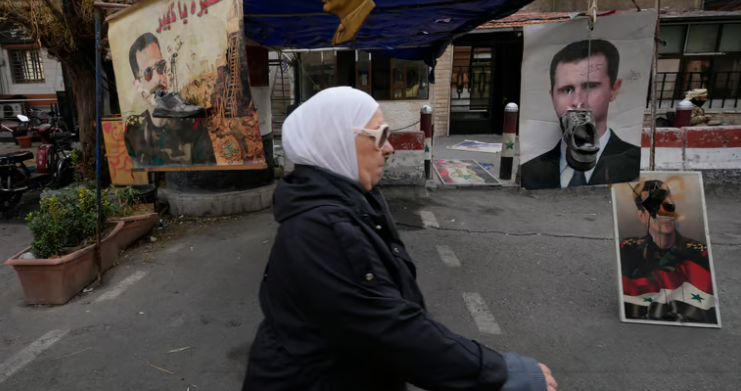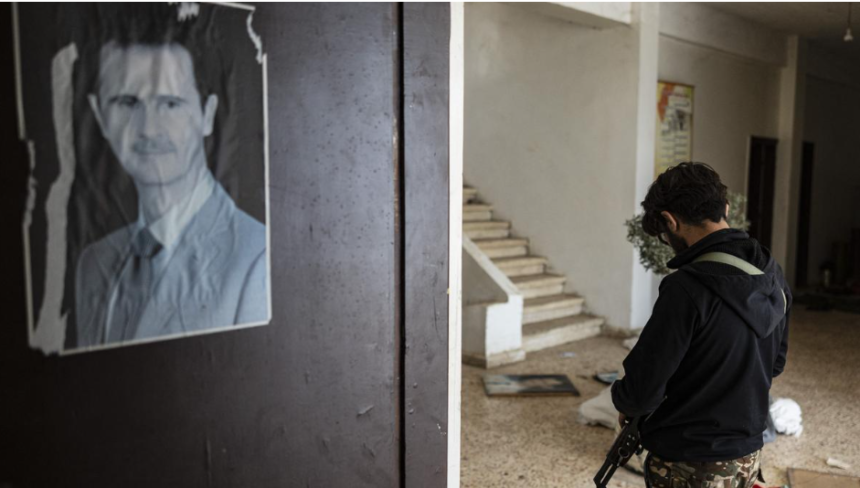Introduction
U.N. Investigative Team a landmark development, the United Nations’ investigative team tasked with probing alleged war crimes during Bashar al-Assad’s rule in Syria has reported a receptive response from the country’s new leadership. This marks the first formal visit by the International, Impartial, and Independent Mechanism (IIIM) to Syria since its establishment by the U.N. General Assembly in 2016.
Led by Robert Petit, an experienced prosecutor in international criminal law, the visit signifies a turning point in accountability efforts and opens the possibility for justice for millions affected by the Syrian civil war, which spanned over a decade and claimed hundreds of thousands of lives.
The International, Impartial, and Independent Mechanism (IIIM)
The IIIM was created in 2016 as an investigatory body designed to assist in prosecuting individuals responsible for war crimes, crimes against humanity, and other serious violations of international law committed in Syria since 2011. For the more information click on this link
For the more information click on this link
Mandate:
- Collecting, analyzing, and preserving evidence of atrocities.
- Facilitating justice mechanisms, such as trials in national or international courts.
While the IIIM has primarily worked remotely due to security concerns and lack of access to Syria, its recent visit signals potential breakthroughs in bringing justice to victims.
Receptive Engagement with Syria’s New Leadership
The recent leadership change in Syria, U.N. Investigative Team with Ahmed al-Sharaa succeeding Assad as the country’s new head of state, appears to have created a more conducive environment for engagement on issues of accountability. Al-Sharaa’s administration has shown signs of openness to addressing the alleged crimes of the past, a stark contrast to Assad’s defiance during his tenure.
Robert Petit, head of the IIIM, expressed cautious optimism following the visit:
“Syria’s new authorities have demonstrated a willingness to cooperate with international accountability mechanisms. This is a positive step forward, but there remains a long road ahead.”
Key Discussions During the Visit
The IIIM’s visit involved high-level meetings with Syrian officials, U.N. Investigative Team as well as engagements with civil society groups and victims’ advocates. Key points of discussion included:
- Access to Evidence:
The IIIM secured agreements for increased access to evidence held by Syrian authorities, including government documents, military orders, and intelligence records related to the Assad regime. - Protection of Witnesses and Victims:
Ensuring the safety of witnesses and survivors willing to testify remains a priority. Syrian authorities pledged support for protecting these individuals, a critical step in facilitating transparent investigations. - National Prosecution Efforts:
Talks included the potential for Syria to initiate domestic war crime trials under international oversight, a move that could pave the way for hybrid justice mechanisms.
Allegations of War Crimes During Assad’s Rule
The Assad regime has faced widespread allegations of war crimes and crimes against humanity, including:
- Chemical Weapons Use: Repeated attacks on civilians involving sarin and chlorine gas, despite international conventions banning their use.
- Mass Detentions and Torture: The systematic detention of political dissidents, journalists, and ordinary civilians in secret facilities where many were tortured or executed.
- Targeting of Civilians: Widespread destruction of civilian infrastructure, U.N. Investigative Team including hospitals and schools, as part of military operations.
- Siege Warfare and Starvation: Prolonged sieges of cities like Aleppo and Ghouta resulted in mass starvation and suffering among trapped populations.
The IIIM has amassed considerable evidence, including testimony from survivors, U.N. Investigative Team satellite imagery, and leaked documents from former regime insiders, to substaate these claims.
Challenges Ahead in Seeking Justicenti
Despite the progress symbolized by the IIIM’s visit, U.N. Investigative Team significant challenges remain in the path toward justice:
- Impunity Among High-Ranking Officials:
Many of Assad’s close allies and commanders remain powerful and could resist attempts to prosecute them. - Potential Political Roadblocks:
Regional and global powers with vested interests in Syria might attempt to influence or limit accountability efforts. - Safety and Security Concerns:
Ensuring the safety of investigators, witnesses, U.N. Investigative Team and victims within Syria remains a critical obstacle. - Rebuilding Trust:
Years of distrust toward the international community and its perceived lack of intervention during the conflict may affect Syrian citizens’ willingness to participate in the process.
Global Reactions to the Visit
The IIIM’s progress in engaging Syria’s new leadership has garnered mixed reactions internationally.
Supportive Voices:
- U.N. Secretary-General António Guterres:
“This cooperation is a vital step in the pursuit of justice for the Syrian people. Accountability is essential for lasting peace and reconciliation.” - European Union:
The EU welcomed the development, emphasizing the need for comprehensive justice to ensure future stability in the region.
Skepticism and Caution:
- Human Rights Watch:
While cautiously optimistic, the organization noted that systemic reforms and sustained cooperation would be necessary for genuine accountability. - Syrian Advocacy Groups in Exile:
Some expressed concerns that the new Syrian leadership might use limited cooperation to avoid deeper scrutiny and accountability.
Perspectives from Victims and Survivors
The victims of Assad-era crimes have long demanded justice, U.N. Investigative Team seeing accountability as essential to healing and rebuilding Syria.
- Survivors’ Testimonies:
Former detainees of the regime’s notorious prisons have urged the IIIM to prioritize uncovering the fate of thousands who remain missing. - Civil Society Voices:
Syrian organizations have called for a balanced approach that ensures justice while fostering reconciliation to avoid reigniting sectarian tensions.
A survivor of the Saydnaya prison remarked,
“We cannot rebuild Syria without justice. It is not about revenge but about giving a voice to those who suffered and ensuring this never happens again.”
Path Forward: Accountability and Reconciliation
The success of the IIIM’s efforts in Syria will depend on balancing international and national mechanisms for justice. Potential paths forward include:
- Hybrid Courts:
Establishing courts involving both Syrian and international judges to ensure credibility and fairness. - Strengthening Evidence Collection:
Expanding cooperation to build a comprehensive case against those responsible for crimes. - Public Outreach and Education:
Engaging Syrians in the accountability process to rebuild trust in justice systems and foster reconciliation. - International Pressure:
Sustaining global attention and pressure on Syria to uphold its commitments to justice and transparency. For the more information click on this link
For the more information click on this link
The Larger Implications for International Justice
The IIIM’s engagement with Syria sets an important precedent for addressing war crimes in protracted conflicts. It demonstrates that accountability, though delayed, is achievable through sustained international effort.
Other nations experiencing similar challenges, such as Yemen and Myanmar, U.N. Investigative Team will closely observe the outcomes in Syria to inform their own justice strategies.
Conclusion
The willingness of Syria’s new leadership to cooperate with the U.N. investigative team represents a glimmer of hope in the country’s pursuit of justice after years of brutal conflict. While challenges abound, U.N. Investigative Team the commitment of the IIIM and the voices of the Syrian people provide a foundation for uncovering the truth and ensuring accountability.
As Robert Petit and his team continue their vital work, the global community must remain steadfast in supporting efforts to seek justice and uphold the principles of human rights. For Syria, U.N. Investigative Team this moment represents both an opportunity and a responsibility to turn the page on a dark chapter and build a future rooted in accountability and reconciliation. ALSO READ:- Man Charged with Murder in Subway Fire Death: What to Know About the Tragic Incident 2024





